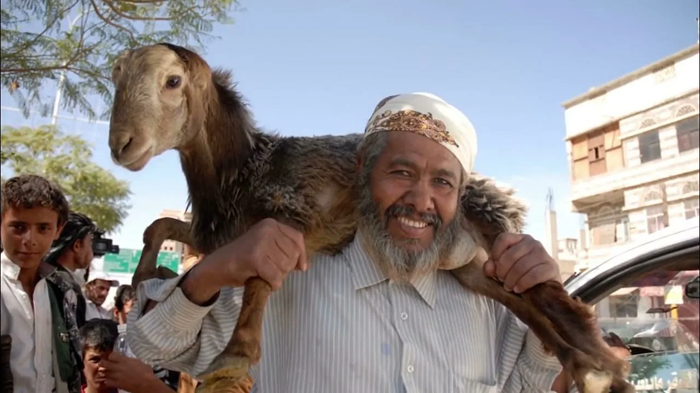The next most important holiday in Egypt after Eid al-Fitr. Eid al-Adha is celebrated 70 days later and symbolizes the end of the Hajj, the pilgrimage to Mecca and its environs. This pilgrimage, like fasting, is one of the pillars of the Islamic faith.
The people call Eid al-Adha the “Festival of Sacrifice” and its history goes back to the Islamic prophet Ibrahim. According to the Quran, the holy book of Muslims, Ibrahim was commanded by Allah in a dream to sacrifice his son. He went with his son to Mina, where Mecca is now located, to perform the sacrifice, but at the very moment of the sacrifice, the knife could not cut. As if Allah himself had done so. The son’s sacrifice was replaced by a ram, and Ibrahim was granted the birth of a second son.
Egypt celebrates Eid al-Adha with four consecutive days off. It is an official holiday. The celebration corresponds to the name “Festival of Sacrifice”, as on this day Muslim people sacrifice animals. These can be rams, goats, camels or bulls. You will not see ceremonial sacrifices, as this is prohibited by law. The slaughter of the animal takes place in special slaughterhouses, after which a third of the meat is taken by the family itself, a third is given to needy relatives, and another third is given to the poor as alms.
On this day, Muslims put on their best clothes, visit, congratulate each other on the holiday, set festive tables. Although this holiday implies a long public holiday in Egypt, locals do not go to the sea. A small number of Egyptians may come to the hotels, but not more than usual. So tourists from other countries may not understand that there is a religious holiday in the country.

